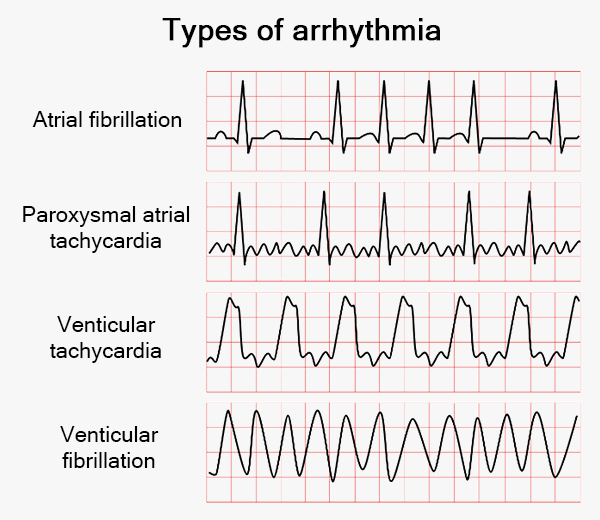Heart Arrhythmia Specialist
One of the danger signs of an impending heart event — such as an attack or stroke — is a fluctuating heartbeat. A healthy heart beats strong and regular. Arrhythmia is an abnormal rhythm of your heartbeat. It signals that something is wrong in the function or anatomy of your heart. While an occasional flutter may be nothing to worry about, a prolonged bout of arrhythmia needs immediate attention. Visit heart specialist Dr. Reisman for an accurate diagnosis and arrhythmia treatment plan.
Arrhythmia is a heart condition that causes your heart to beat too fast, too slow or with an irregular pattern. This abnormality in your heart rhythm can sometimes turn into a heart condition like coronary heart disease, conductive tissue disease or heart valve disease. In serious cases, arrhythmia is also associated with myocardial infarctions or a stroke.
Arrhythmia often has no symptoms. You may only discover your irregular heartbeat during a routine checkup with the cardiologist at the Cardiology Center in Manhattan. You might have Arrhythmia
if you experience any symptoms associated with heart disease, such as:
- Chest pain
- Trouble breathing
- Syncope or lightheadedness
- Unexplained sweating
- Heart palpitations, causing a racing, pounding or fluttering feeling
Recognizing Abnormal Heartbeat Patterns
One in every four Americans over the age of 40 suffers from arrhythmia. If your heart rate is slower than 60 beats per minute, the condition is called bradyarrhythmia. If your heart beats faster than 100 beats per minute, you are suffering from tachyarrhythmia. The electrical impulses are usually disoriented in one of three places:
- The atria or upper chamber of your heart
- The ventricles or lower chamber of your heart
- An area in between, your accessory pathways

Symptoms and conditions that may require arrhythmia treatment for your heart include:
- Atrial fibrillation. This condition puts nearly 2.7 million Americans at risk for sudden cardiac death and stroke. Atrial fibrillation causes irregular electrical impulses, leading to blood clots and other fatal coronary diseases.
- Atrial flutter. When your heart beats fast, but with an even rhythm, it creates weak contractions of the atria. This can compromise your heart, potentially leading to a stroke.
- Heart block. This condition is characterized by how slowly the electrical impulses move from your atria to your ventricles.
- Long QT syndrome. If your heart starts beating fast and chaotically, you can faint or have a seizure. If you don’t get treatment, it can be fatal.
- Paroxysmal supraventricular tachycardia. This condition develops at any age. It’s often misdiagnosed as a panic attack.
- Sick sinus syndrome. When your heart’s natural pacemaker is compromised, it results in a slow heart rate. In some cases, your heart rate fluctuates between a slow rate and a rapid rate.
- Ventricular tachycardia. With this disease, you require immediate medical assistance, as it prevents your ventricles from pumping sufficient blood throughout your body.
- Ventricular fibrillation. An extreme version of ventricular tachycardia, this is often fatal if your heart rhythm isn’t restored to normal within minutes. Nearly 85 percent of sudden cardiac deaths are linked to this illness.
- Ventricular ectopic. Your heart beats prematurely, followed by a significant pause. The beat after the pause is usually stronger, making it feel like your heart’s fluttering.
- Wolff-Parkinson-White syndrome. A birth defect that doesn’t show symptoms until you’re an adult, this abnormal electrical connection occurs in your accessory pathways. It disrupts your normal heart rate.
Read more: https://newyorkcardiac.com/arrhythmia
If you have any questions for the best in class NYC cardiologist or would like to schedule a consultation or appointment, please feel free to contact our Wall Street / Financial District Cardiologist`s Office 212-860-5404.
New York Cardiac Diagnostic Center
65 Broadway Suite 1806
New York, NY 10006
212-860-5404
Web Address https://newyorkcardiac.com/
Financial District / Wall Street Office: https://newyorkcardiac.com/best-financial-district-wall-street-cardiologists-nyc
Our location on the map: https://g.page/New-York-Cardiology-Downtown-NYC
https://plus.codes/87G7PX4Q+W2 New York
Nearby Locations:
Financial District / Wall Street
World Trade Center, Two Bridges, Tribeca, Lower East Side
10002, 10003, 10007, 10009
Working Hours:
Monday: 8 am – 5 pm
Tuesday: 8 am – 5 pm
Wednesday: 8 am – 5 pm
Thursday: 8 am – 5 pm
Friday: 8 am – 5 pm
Saturday: Closed
Sunday: Closed
Payment: cash, check, credit cards.
